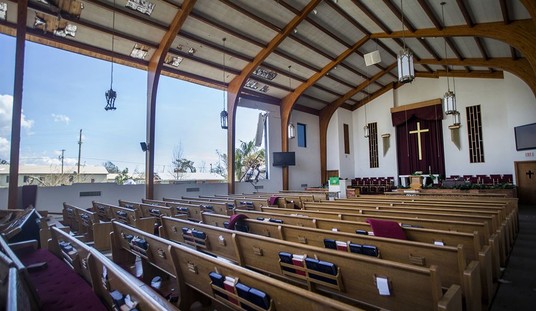There’s much mockery of this cringy, quintessentially Gillibrandian tweet on political Twitter this afternoon. It has a “defund the police” vibe to it, not because it’ll seem sinister to the average joe but because it’s something only a strident progressive activist could take seriously.
Paid leave is infrastructure.
Child care is infrastructure.
Caregiving is infrastructure.— Kirsten Gillibrand (@SenGillibrand) April 7, 2021
One person replied to her by paraphrasing, “Anything I want to funnel money into is infrastructure.” It reminds me of the Democrats’ attempt to bootstrap a $15 federal minimum wage into the COVID relief bill, which was ultimately denied by the Senate parliamentarian for procedural reasons. You could try to frame a minimum-wage boost conceptually as a subset of COVID relief if you like — certainly the argument for that is stronger than the idea that paid leave is “infrastructure” — but that’s not why Dems wanted to tack it on. They knew they couldn’t get the votes to raise the minimum wage in a standalone bill but had an outside chance of doing so in a big-ticket must-pass package like the stimulus bill. So they stretched the meaning of words, in this case “COVID relief,” to suit their legislative ambitions. Same with Gillibrand and “infrastructure.”
I’ll say this for her, too: Her tweet is true to the spirit of the bill the White House is pushing. The infrastructure package is just a giant slush fund to pay for a basket of social-welfare programs that have been on the Democrats’ wishlist for years. Real, actual infrastructure is in there too, of course, and because it is and because Joe Manchin seems open to blockbuster spending on it, they’re going to shoehorn as many other progressive priorities into the bill as they can. If that means redefining food stamps or whatever as “infrastructure,” that’s an easy leap. Remember, these are the same people who define speech as “violence” and due process as “guilty until proven innocent” in certain contexts. “Caregiving is infrastructure” is no great stretch for them. Kevin Williamson:
The problem is not federal infrastructure spending per se: The problem is “infrastructure” bills that are in fact political slush-funds. We go about infrastructure in a way that is precisely backward: Instead of figuring out, one project at a time, what needs doing and how to prioritize those demands — repaving this section of interstate highway, replacing that bridge — and then seeing what that all adds up to and making informed decisions about timing and tradeoffs, we come up with some silly round number — say, $2,000,000,000,000.00 — and then see if we can find a politically attractive way to shovel all that cash out the door. That is how you end up spending a lot of money on infrastructure without actually getting much infrastructure. It’s the national version of the paradox in which the roads of so many American cities are always being repaired but are never repaired…
Any dummy can spend $2 trillion: Put the cash on the table, and somebody is going to figure out a way to pick it up. Some of those people will be government contractors, some of them will be farmers who are keen on a subsidy, some of them will be rich guys in the Hamptons who don’t want to be on the hook for the entire sum of their local taxes, and so on — there’s no shortage of constituencies eager for federal largesse.
All Giilibrand’s guilty of, really, is expanding the constituencies for the bill from groups that might kinda sorta semi-plausibly be described as involved in “infrastructure” projects to individual taxpayers and industries that can’t remotely make that claim. If we’re going to pass a slush fund, why should anyone be left out of feeding from the trough for something as silly as the basic meaning of words?
Politico reporter Alex Thompson makes a trenchant point about Dem messaging, and not just on infrastructure:
Lot of Dem messaging relies on trying to redefine “bipartisanship” and what is infrastructure https://t.co/uGXkfqFnwD
— Alex Thompson (@AlexThomp) April 7, 2021
They *do* like to play those games. A few days ago the White House claimed that a bill can properly be described as “bipartisan” even if no Republicans vote for it because, after all, some Republican voters support it. Partly that’s Biden wanting to protect his “centrist” image even as he pushes the most progressive agenda in generations but partly too it’s Democrats forever fancying themselves as sensible centrists relative to Republican “radicals” even though their party has been moving left for years.
Here’s an ominous soundbite this afternoon from Jen Psaki about Biden’s “evolving” view of what “infrastructure” is. His top ally in the Senate, Chris Coons, warned that Republicans have until the end of May to make a deal with him on the bill before Democrats cut them out and proceed via reconciliation. Uh, if “infrastructure” now just means “the entire Democratic agenda,” how is that deal supposed to come together?
Biden's Press Secretary Jen Psaki on Biden’s non-infrastructure bill: “his idea of infrastructure is evolving”https://t.co/3TMIZ5JdqP pic.twitter.com/mdYHbYbQgy
— RNC Research (@RNCResearch) April 7, 2021








Join the conversation as a VIP Member